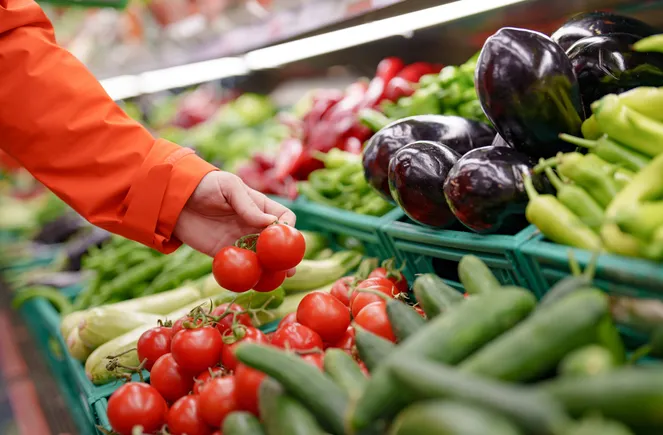Food traceability requirements set to take effect in early 2026 are presenting grocers with financial challenges, supplier difficulties, and potential legal ramifications for non-compliance. With less than a year remaining until the implementation of section 204 of the Food Safety Modernization Act (FSMA), retailers are under pressure to meet the new regulations aimed at enhancing supply chain traceability for swift identification and removal of potentially contaminated foods.
According to Derek Hannum, Chief Customer Officer at ReposiTrak, it is crucial for retailers to fully grasp the requirements outlined in the legislation as they are also held accountable under the rule. During a webinar hosted by the National Grocers Association, Hannum emphasized the importance of understanding and preparing for the impending compliance deadline.
The FSMA 204 mandates traceability for specific foods listed on the Food Traceability List (FTL), including items such as soft cheeses, sprouts, tomatoes, crustaceans, and mollusks. Manufacturers, processors, packers, and holders of these foods must maintain records containing Key Data Elements (KDE) about the products and be capable of providing this information within 24 hours upon request from the FDA. These KDE records must be generated and retained as products move from suppliers to distribution centers to stores and restaurants, with a two-year retention period, as highlighted by Hannum.
Retailers operating central kitchens or producing deli foods for multiple stores must adhere to additional data requirements, like creating new traceability lot codes for transformed food items. In cases where suppliers lack the means to transmit lot codes and related data, grocers and wholesalers must develop mechanisms to manually collect the necessary information. Hannum suggests that companies begin reviewing case labels and informing suppliers about lot code requirements to facilitate the transition to compliance.
To successfully implement traceability, retailers and wholesalers should approach the process in three distinct phases – supplier onboarding for data sharing, traceability at the distribution center and warehouse level, and traceability at the store level, as advised by Hannum.
The evolving industry perception of traceability has transformed it from a regulatory necessity to a competitive advantage for retailers like Kroger, Albertsons, and Walmart. These retailers have established traceability programs that surpass FDA requirements, setting new industry standards for traceability data per shipment and food category coverage. Kroger, for instance, has introduced a traceability policy extending beyond FSMA requirements to encompass all food products entering its facilities, with a deadline six months ahead of the FSMA deadline.
Consumer expectations for transparency and food safety are driving retailers to prioritize traceability efforts. Catherine Cosby, Director of Food Safety and Regulatory Compliance at Kroger, emphasized the importance of meeting consumer demands for product source transparency during Trustwell’s Food Tech Talk.
As grocers navigate the remaining challenges associated with food traceability, understanding suppliers’ diverse technical capabilities is crucial. ReposiTrak and Upshop recently announced a partnership to enhance grocers’ access to supply chain data for traceability initiatives. Kroger is actively working on consolidating supplier information and traceability details into a centralized system to streamline data management processes.
In conclusion, as the FSMA 204 deadline approaches, grocers must equip themselves with a comprehensive understanding of the requirements to ensure compliance, mitigate financial risks, and maintain consumer trust through enhanced food traceability practices. Collaborative efforts with suppliers and industry partners will be instrumental in overcoming the challenges associated with implementing robust traceability programs in the ever-evolving retail landscape. In the middle of 2023, Kroger completed the initial systems design work that enables product and data mapping as items move through the supply chain, as stated in the grocer’s 2023 ESG report. This project was crucial as Kroger evaluated its legacy systems and sought to ensure traceability requirements were met. Cosby, a representative from Kroger, highlighted the importance of having technology partners who could help the tech teams understand current technology limitations and guide them on meeting the new requirements.
During a webinar, Johnson from the NGA emphasized the significance of communication between grocers, wholesalers, and software companies to ensure compliance at individual stores. It was noted by Cosby that the distribution step in the supply chain is often overlooked, but it is crucial to not only remember but also record all supply chain touchpoints for products to maintain compliance.
Despite efforts to comply, grocers and suppliers are facing challenges related to consistent information sharing with the FDA across the supply chain. Cosby mentioned the importance of working with regulators to gain a clear understanding of compliance requirements and seek clarification when needed. Retailers can provide regulators with visibility into their processes to address uncertainties, such as handling situations where an item lacks a case label during transfer between stores.
Cosby also emphasized the need to avoid implementing systems based on assumptions about compliance regulations. It is essential to fully understand the rules and work closely with regulators to ensure compliance without any room for misinterpretation.
In conclusion, Kroger’s completion of the initial systems design work for product and data mapping in the supply chain demonstrates a commitment to meeting traceability requirements and ensuring compliance with regulations. Collaboration with technology partners, wholesalers, and regulators is key to navigating the complexities of supply chain compliance and addressing challenges that arise in the process. By maintaining transparency, seeking clarification when needed, and following regulatory guidelines closely, grocers can enhance their compliance efforts and build a more resilient and efficient supply chain ecosystem.




